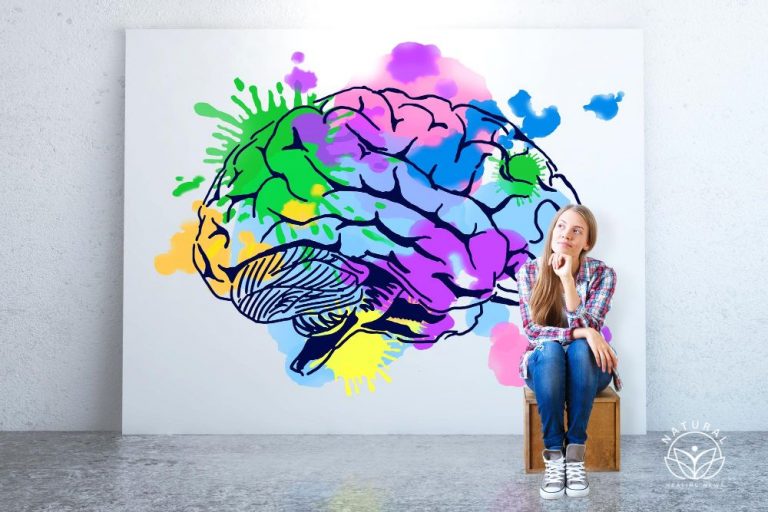Simple Everyday Habits That Can Help Improve Your Memory

The human brain is an amazing thing. Its ability to store and recall information is astounding.
However, as we age, our memories can begin to fade. This can be frustrating and even scary. But there is hope!
It has been famously said that intelligence is not a single ability, but rather the ability to successfully solve problems in a variety of different domains.
This means that, if you want to stay mentally sharp, you need to keep your brain active and engaged in a variety of different tasks.
Here are four simple everyday activities that can help improve your memory and keep your mind sharp:
Get enough sleep
Most people know that getting a good night’s sleep is important, but did you know that sleep can also help improve your memory? When you sleep, your brain is able to store new information and consolidate memories.
This means that getting enough sleep is essential for both learning new things and retaining information. There are a few things you can do to make sure you get enough sleep.
First, try to stick to a regular sleep schedule. Going to bed and waking up at the same time each day can help regulate your body’s natural sleep rhythm.
You should also create a wind-down routine for before bed that allows you to relax and transition into sleep mode. This could include reading, taking a bath, or stretching.
Lastly, make sure your sleeping environment is dark, quiet, and cool to help promote optimal sleep.
If you follow these tips, you’ll be on your way to getting the high-quality sleep your brain needs to function at its best.
And as a bonus, you’ll also start to notice other benefits of getting enough sleep, like having more energy and feeling more focused during the day.
Exercise regularly
You don’t need to join a gym or start running marathons to see benefits from exercising regularly; even moderate amounts of physical activity can have an impact.
Numerous studies have shown that exercise can help improve memory and cognitive function, especially in older adults.
How does exercise help improve memory?
One theory is that exercise increases the production of a protein called brain-derived neurotrophic factor (BDNF). This protein helps nerve cells grow and makes new connections, and has been linked to improved memory and increased cognitive performance.
Exercise has also been shown to improve blood flow and reduce inflammation in the brain, both of which are beneficial for brain health. Regular exercise can also help to reduce stress and improve sleep, both of which are important for brain function.
When you’re stressed, your body releases the hormone cortisol, which has been shown to damage nerve cells and impair memory.
Getting enough quality sleep is also important for memory and cognitive function; during sleep, your brain consolidates information and strengthens memories.
So, if you want to give your memory a boost, start exercising on a regular basis. Even a moderate amount of physical activity can have beneficial effects.
Eat a healthy diet
Your diet has a big impact on your memory. Eating a healthy diet can help improve your memory and protect your brain from damage.
One way that diet affects memory is by providing your brain with the nutrients it needs to function properly. Your brain needs a lot of energy to keep working, and it gets this energy from glucose.
Glucose is a type of sugar that is found in many foods, and it is the main source of energy for your brain. Eating a diet that is high in glucose can help improve your memory.
Research has shown that people who eat a diet that is high in glucose have better memories than people who eat a diet that is low in glucose.
Another way that diet affects memory is by providing your brain with the antioxidants it needs to protect itself from damage. Antioxidants are found in many fruits and vegetables, and they help to protect your cells from damage.
Eating a diet that is high in antioxidants can help to improve your memory and protect your brain from damage. One study found that people who ate a diet that was high in antioxidants had better memories than people who ate a diet that was low in antioxidants.
So, eating a healthy diet can help improve your memory in two ways: by providing your brain with the nutrients it needs to function properly, and by providing your brain with the antioxidants it needs to protect itself from damage.
Reduce stress
Stress has been linked to a number of negative health effects, including memory problems. Chronic stress can damage the brain’s hippocampus, which is responsible for memory and learning.
Even if you’re not currently experiencing a lot of stress, it’s still important to find ways to reduce stress in your life to protect your memory. There are a number of simple things you can do to reduce stress.
Exercise is a great way to reduce stress and improve your overall health. Just a moderate amount of exercise can help to reduce stress levels.
Yoga and meditation are also great for reducing stress. If you don’t have time for a formal yoga or meditation class, there are plenty of apps and websites that offer guided meditation.
You can also try simple breathing exercises or relaxation techniques.
Spending time with friends and family can also help to reduce stress. Social support has been linked to lower stress levels and improved mental well-being.
Although you might not be able to control how much your memory declines with age, there are things you can do to keep your mind sharp.
Staying active and social, eating healthy, and exercising your body and mind can all help to improve your memory. So, if you’re looking for ways to keep your mind sharp, these simple everyday habits can help.





